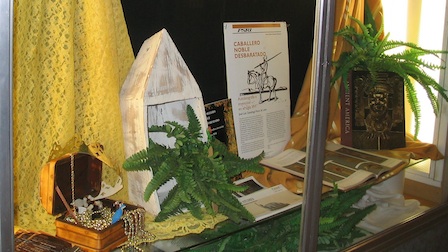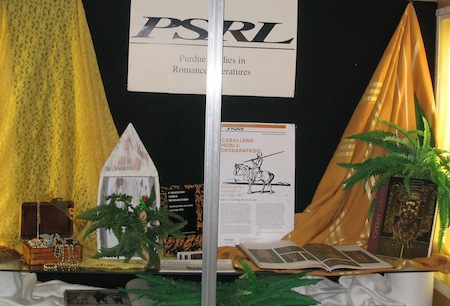Caballero noble desbaratado: Autobiografía e invención en el siglo XVI
José Luis Gastañaga Ponce de León
First-person narrative does not always fall under the genre of autobiography. In the centuries before the genre was defined, authors often patterned their personal narratives after prestigious discourses, such as hagiography, historiography, and the literary miscellany. Caballero noble desbaratado: Autobiografía e invención en el siglo XVI [Noble Knight Disrupted: Autobiography and Invention in the Sixteenth Century] analyzes several first-person narratives from Spain and the conditions of their writing and reception. It focuses on the sixteenth-century Libro de la vida y costumbres [Book of Life and Customs] by Alonso Enríquez de Guzmán (1499–1547), the knight of the title.
One chapter looks at antecedents to the central work: the late fourteenth-century Memorial by Leonor López de Córdoba, who narrates difficult passages of her life; the Breve suma de la vida y hechos [Brief Summary of the Life and Deeds] by Diego García de Paredes, who speaks of duels and battles as an object lesson in honor and courage for his son; and Cautiverio y trabajos [Captivity and Travails] by Diego Galán, a tale of captivity and flight in Muslim lands that constitutes an early example of fictionalized autobiography. The study also examines the influence of writers like Bartolomé de Torres Naharro, Antonio de Guevara, and Pedro Mexía and the vitality of lyric poetry on both sides of the Atlantic.
Although the Biblioteca de Autores Españoles has devoted a volume to Enríquez de Guzmán, there has never been a book-length study dedicated to this author. This book fills that gap and constitutes a valuable contribution to the study of autobiography in Spanish.
"… this straightforward and useful book … looks at the form of Spanish autobiographies of the sixteenth century. … By accentuating an important yet understudied text, Gastañaga does service to scholarship. By developing a thesis around the intertextual frames and the wide range of antecedents in self-writing, he extends the contribution and suggests a paradigm for exploring and evaluating subsequent narratives, fictional and nonfictional."—Edward H. Friedman, Renaissance Quarterly 65.1 (Spring 2012): 246-47
"El libro de Gastañaga Ponce de León no solo pone en relieve la figura y obra de Enríquez de Guzmán, sino que también invita a reflexionar, con ideas frescas, en torno a la prosa del siglo XVI, la autobiografía en la Edad Media y el Siglo de Oro y el género textual de la miscelánea." —Grupo de Investigación de Siglo de Oro, Universidad de Navarra, Oro de Indias [Blog], Grisonet, https://orodeindias.wordpress.com/2014/11/10/don-alonso-enriquez-de-guzman-caballero-noble-desbaratado/
"Este es un libro interesante sobre un tema fascinante: la invención en España del individuo o el "yo" interiorizado laico en narrativas personalizadas de los siglos XIV-XVI." —A Robert Lauer, TEATRO-L Archives 31 Dec. 2012, https://lists.ou.edu/cgi-bin/wa?A2=teatro-l;b02fe37c.1212
"… [este libro] nos permite acercarnos a los orígenes de la autobiografía desplazando la óptica del lector de la Historia real e imperial española, a la óptica de individuos y sus luchas por abrirse espacios de poder por medio de las letras." —Carmen Rita Rabell, Revista Iberoamericana 81.251 (Apr. June 2015): 692-95
BOOKS RECEIVED:
Nueva Revista de Estudios Hispanicos 59 (2011)
Hispanic Review 80.2 (Spring 2012):
José Luis Gastañaga Ponce de León, Villanova University, has published essays on Early Modern Spanish literature and Latin American Colonial historiography. Currently he is working on La Celestina and early forms of the novel.
PSRL 51. 2011. xiii, 198 pp. ISBN 978-1-55753-602-0 Paper $45.00. In Spanish


Display case in Stanley Coulter Hall the week of November 8-16, 2011.
Information last updated January 19, 2016
For further information about this book, contact the production editor at psrl@purdue.edu